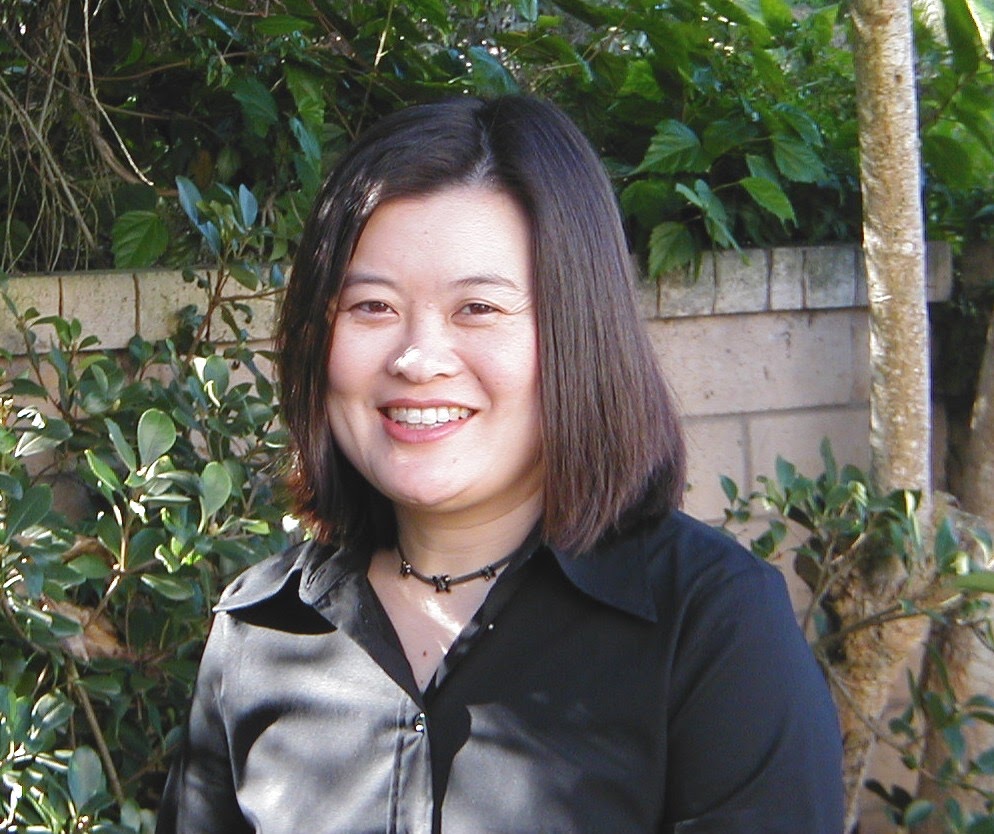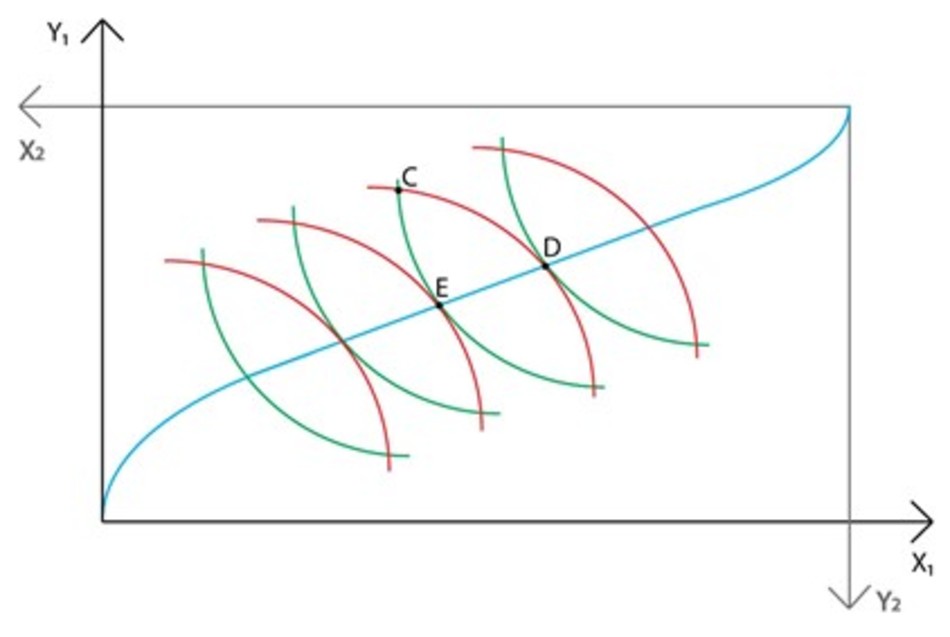
ALLY MINTZER – APRIL 6TH, 2020
Jeeyang Rhee Baum is an Adjunct Lecturer in Public Policy at the Harvard Kennedy School of Government. Her research focuses on the political economy of administrative reform, particularly as it relates to accountability, transparency, and public participation in policy development in East Asia.
Ally Mintzer: I’d like to first talk about your personal journey and how it has led to your research in public policy in East Asia. Can you describe your background and what experiences led you to discover your passion for public policy?
Professor Baum: Yes! I went to public policy school for my master’s degree, since at the time I was very interested in studying how government decisions are made. Then I did a summer internship with the State Department and was assigned to the embassy in Nepal. Through that internship, I discovered that there was a whole democratization process that not only Nepal was going through, but a lot of other countries as well. Essentially, my interests started to go more and more towards international development. After the State Department internship, I moved to Washington D.C., where my goal was to work in international development. However, I ended up taking a job in the Executive Office of the President at the Office of Management and Budget. There, I learned what public policy decision making in the executive branch of the United States was like. But I was not working on East Asia or Nepal or international development—I was working on transportation issues.
Ally Mintzer: Also important.
Professor Baum: Yes, exactly! Through studying different modes of transportation, I gained a lot of knowledge about infrastructure finance, interest group politics, and R&D programs. Currently, I teach corruption and development, and a lot of those issues have to do with infrastructure. After working at the OMB, I eventually went back to get my PhD in political science at UCLA because I kept asking more questions and wanted to get back to international development issues.
Ally Mintzer: What inspired you to research public policy in East Asia, in particular?
Professor Baum: To get into my doctoral program, I wrote a paper on Brazil’s democratization and development policies. When I got to school, I found myself moving more and more towards “my roots,” as my adviser called it, specifically in South Korea and its neighboring countries. When I had to write my dissertation proposal, I decided not to focus on Brazil and focus instead on the East Asian democracies. I found that the problems I was interested in had to do with my experience in government: how executive branches differ across countries, how policies are developed in the executive branch across countries, and then more generally how our laws pass and are designed.
Ally Mintzer: What are some areas you are researching right now and how are you collecting your data?
Professor Baum: I’m working on several areas: I don’t know if you want me to talk about all of them…
Ally Mintzer: Yes! I’d love that.
Professor Baum: One area is looking at the different ways bureaucracies restructure themselves after democratic transition. I’m measuring the different types of organizations or regulatory measures that different governments adopt with respect to how policies are made and who gets to participate. It’s kind of an extension of my first book, which was about APAs [administrative procedure acts]. Much of this data involves translating legislation and coding it. The goal is to get accurate, qualitative data and then try to standardize it empirically so that eventually we can conduct statistical analysis.
Another area I’m looking at is why some political parties in various countries are adopting primaries for presidential nominations and others are not. There hasn’t yet been a satisfactory explanation for why this happens in some of the new democracies in East Asia, specifically Korea, Taiwan, and Japan (a long time ago).
My last research project has more to do with corruption in East Asia and beyond. I’m trying to understand the relationship between the frequency of reporting of political scandals in various media sources. Arguably, there has been a substantial rise in political scandals being reported by various media outlets, so I’m trying to understand this increase and if there are underlying causes that might explain why the frequency has gone up.
Ally Mintzer: Have you formed any conclusions thus far as for why there has been such a rise in scandals in the media?
Professor Baum: I don’t have a definitive conclusion, but I have my suspicions. Forming such a conclusion involves separating the cause and effect: is it that there are more corruption scandals in real time, or does the media now have the freedom to report more scandals? I don’t know which yet. However, I hypothesize the increase of reported scandals has something to do with interparty competition. There is a new unseen level of political competition, whereas before single parties dominated the political apparatus. With political democratization, there is much more alternation between party representation in government and more incentive for parties vying for the same office to potentially use the media.
Ally Mintzer: I think you touched on your book “Responsive Democracy: Increasing State Accountability in East Asia,” where you discuss APAs that aim to govern how federal agencies create policies and regulations. One particular country you discussed extensively was South Korea: can you elaborate on how the country’s economic state led to the passage of their APA in 1994?
Professor Baum: South Korea’s economic state was a very critical impetus for why the APA passed when it did. This was an era of globalization, and the president that came into power was the first civilian president since democratization. He was coming into an international scene where Korea was a member of the Organization for Economic Cooperation & Development and the World Trade Organization: they had a lot to prove and faced organizational pressure. Essentially, this was the era of deregulation. The state had to withdraw its heavy hand in the economy and direct the country towards more regulatory frameworks that were consistent with the OECD’s standards. And in this ripe post-economic growth era where they had taken care of basic needs, they were suddenly finding themselves worrying about environmental cleanup and social issues that required a kind of framework. The APA was one option, and the politics were ripe enough for the passage.
Ally Mintzer: A long-standing debate in economics is the conflict between regulation and economic growth. What are your thoughts on this?
Professor Baum: This question is huge. I am certainly not an expert on this particular question—there are a lot of academics that focus squarely on this relationship and dynamic. Based on my research and thinking with respect to the countries I know more about (I want to caveat that), I think that it’s about finding the right balance depending on the context. Different times in a particular country might require more or less regulation relative to their neighbor. It depends on your comparative advantage and what kind of government you have. For the East Asian NICs [newly industrialized countries] of Taiwan, Hong Kong, Singapore, it made sense for them coming out of, say, the Korean War for Korea’s case or WWII, to rebuild. It made sense for authoritarian, single-party governments to have a heavy hand in directing and steering the economy without contending with activists and interest groups. At this time, heavy regulation led by the state was essential for economic growth. But then, after the takeoff when growth rates began to wane, they had to switch gears and deregulate, become less heavy handed, and allow for other regulatory actors to have a stake in economic policies. Otherwise, the government would have been toppled. All these political factors matter; it’s fairly complex.
Politics is messy. I believe that while you can have an economic theory driving certain sets of macroeconomic policies, at the end of the day you have to factor in the local politics. That’s where I think general theories or models of economic development fall short.
Ally Mintzer: At Harvard, you’re currently teaching a course on corruption. Are there any particular trends regarding corruption: is it on the rise or falling?
Professor Baum: This is a really good question. In the past two decades, especially in political science, it’s become one of the focal points for comparative politics. Before, corruption was mainly studied on a case-by-case level, with less attention to cross-national analysis. Before, both from the policy world and academia, there was an understanding that corruption would go away or we wouldn’t see the distorted effects of corruption hampering a country’s economic growth if we democratized the country. But that hasn’t happened. There are a whole bunch of countries where even with democratization, corruption got worse.
The international organization Transparency International has a corruption perception index that measures the perception of political corruption from experts. The survey began in the 90’s and is done annually in 180 countries. This past year, they said that corruption is going up, including in the US. However, while it allows us to compare across countries, it’s highly problematic because the index is based on perception—which isn’t to say that they aren’t helpful at all, we look at them all the time and study them in class. But it’s different from measuring actual corruption or even experience-based corruption.
There are lots of different types of corruption, from grand corruption, extortion, embezzlement to petty theft. The easiest way to divide them is corruption based on need or greed. One prevalent definition of greed-based corruption is the misuse of public office for private gain, like using money from taxation for private gain. An example of need-based corruption is bribes that a consumer might have to pay in order to see the doctor. This is a necessity and everyone is doing it—if you don’t do it, you don’t get the vaccine. Most corruption falls into one of the two categories, but there is also a gray area.
Ally Mintzer: What made you pursue academia rather than work in industry?
Professor Baum: Because most people went to academica! *Laughs* No, but it’s a good question, especially now. When I got my PhD at UCLA, in those days the reason why you got a PhD was to go into academia or a think tank. I was already working in government, so I knew I wouldn’t give up my job for the next 6 years if I wasn’t going to go into academia. I certainly had friends (not many though) that went to apply for organizations that require the skills you get through a PhD, say, McKinsey, or think tanks like the RAND Corporation. Now there are a lot of people that pursue other academic work with a PhD. For me, there was never a question. Sometimes I think maybe I should have questioned it *laughs* but I think for me it was always about the notion of the “revolving door”—or whether to go through that revolving door. I always wanted to be consulting governments, countries, or organizations that are creating policies. In academia, I love to always think about issues and be informed by practitioners; that’s why I love teaching at the Kennedy School. Also, I wanted to teach! My dad was an economics professor, so I grew up in an environment always talking about politics. I always loved the idea of thinking all the time. Somebody once asked me what other job pays you to read all day? Maybe you should consider it too! And you get summers off too—sort of.
Featured Image Source: Harvard Kennedy School
Disclaimer: The views published in this journal are those of the individual authors or speakers and do not necessarily reflect the position or policy of Berkeley Economic Review staff, the Undergraduate Economics Association, the UC Berkeley Economics Department and faculty, or the University of California, Berkeley in general.



